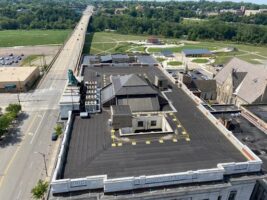EFFECTIVE COST CONTROL STRATEGIES IN CONSTRUCTION MANAGEMENT
Effective Cost Control Strategies in Construction Management
Construction projects are notorious for their potential to exceed budgets and timelines. Effective cost control is essential to keep a project on track and within the allocated budget. In construction management, the ability to manage costs efficiently can make or break a project’s success. Here, we explore key strategies for effective cost control in construction management.
1. Detailed Project Planning
A well-defined project plan is the foundation of effective cost control. It should include clear project objectives, timelines, scope, and budget estimates. A detailed project plan enables better resource allocation and reduces the likelihood of costly changes and delays during the construction phase.
2. Regular Cost Estimation and Monitoring
Regularly update cost estimates and track expenses throughout the project. This allows you to identify cost variations early and take corrective actions, such as adjusting resource allocation or revising the project plan.
3. Risk Assessment and Contingency Planning
Identify potential risks that can impact the project’s cost. Develop contingency plans to address these risks and allocate a budget for contingencies. This proactive approach can prevent unexpected costs from derailing the project.
4. Effective Communication and Collaboration
Clear communication among project stakeholders is crucial. Ensure that the project team, subcontractors, and suppliers are aware of cost constraints and the importance of cost control. Effective collaboration can lead to cost-saving ideas and solutions.
5. Supplier and Contractor Selection
Choose suppliers and contractors carefully. Evaluate their track record, pricing, and quality of work. Collaborating with reliable partners can minimize cost overruns and ensure project efficiency.
6. Material Management
Efficient material management involves ordering materials in the right quantities, reducing wastage, and minimizing storage costs. Just-in-time delivery systems and inventory management can significantly impact cost control.
7. Optimize Resource Allocation
Properly allocate labor, equipment, and materials to prevent resource shortages and overages. Utilize resource management software and tools to streamline this process.
8. Regular Progress Monitoring
Track the progress of the project against the project plan. Regular site inspections and progress reports help identify any deviations from the plan and address them promptly.
9. Change Management
Implement a robust change management process to evaluate and approve any changes to the project scope or design. Changes should only be made when they align with project goals and are within the established budget.
10. Benchmarking and Continuous Improvement
Compare your project’s performance against industry benchmarks and historical data. Continuous improvement can help identify areas where cost control can be enhanced in future projects.
11. Technology Adoption
Leverage construction management software, Building Information Modeling (BIM), and other technology tools to streamline project management, reduce errors, and enhance efficiency.
12. Value Engineering
Encourage value engineering practices to identify cost-effective alternatives without compromising quality. This can lead to substantial cost savings without sacrificing project objectives.
13. Documentation and Record-Keeping
Maintain detailed records of all project-related documents, including contracts, change orders, and receipts. Proper documentation is essential for auditing and cost analysis.
14. Quality Control
Prioritize quality control measures to avoid rework and costly repairs. Ensuring that work is done correctly the first time can significantly impact cost control.
15. Client and Stakeholder Involvement
Engage clients and stakeholders in the cost control process. Their insights and support can be valuable in making informed decisions that align with the project’s budget and objectives.
In conclusion, effective cost control in construction management is a multi-faceted endeavor that requires meticulous planning, proactive risk management, and continuous monitoring. By implementing these strategies, construction managers can enhance their ability to keep projects on budget and on schedule, ensuring the overall success of their endeavors.


